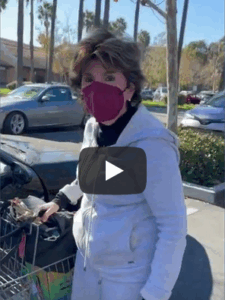Erik and Lyle Menendez, infamous for the 1989 murders of their wealthy parents, recently faced separate parole hearings in California, where both were ultimately denied release. The hearings focused on their time in prison, shedding light on their behaviors and regrets, which influenced the parole boards' decisions.
Menendez Brothers Denied Parole: Key Insights from Recent Hearings

Menendez Brothers Denied Parole: Key Insights from Recent Hearings
Insights from the recent parole hearings of Erik and Lyle Menendez, who were denied release after decades in prison, reveal their prison conduct played a significant role in the decision.
The Menendez brothers' efforts to attain parole were thwarted this week during hearings in California, where their history of prison conduct emerged as a critical factor in the boards' decisions. While they have spent decades incarcerated for killing their parents, the commissioners emphasized their behavior behind bars, rather than the murders themselves.
Erik Menendez, 54, appeared before a board on Thursday, and Lyle Menendez, 57, followed on Friday. The hearings, conducted remotely, revealed a troubling pattern of misconduct; Erik faced significant criticism for engaging in gang-related activities, fights, and drug use. He also accumulated contraband items, such as wine-making materials and art supplies that he used for decorating his prison cell. Parole commissioner Robert Barton concluded that Erik's "institutional misconduct showed a lack of self-awareness," leading to his denial of parole.
During Lyle's hearing, parole commissioner Julie Garland noted his apparent remorse and positive changes, but cautioned that underlying antisocial traits, including deception and rule-breaking, remained present. Although Lyle had made efforts to improve his situation, including assisting fellow inmates, these characteristics weighed heavily against him.
Both hearings highlighted the brothers' continual violations of prison rules, most notably their unauthorized use of mobile phones. Erik acknowledged that his desire to connect with the outside world outweighed the potential consequences of being caught, while Lyle’s recent violation occurred just months earlier, demonstrating ongoing disregard for regulations.
Reflecting on their past, both brothers reiterated their claims of self-defense, asserting they believed their lives were in danger due to ongoing abuse from their parents. Erik stated that running away from home felt like a death sentence, while Lyle explained that his actions were driven by a profound belief that their parents intended to kill him as well.
Family support was poignant during the hearings, as relatives expressed their forgiveness and desire for the brothers' release. Teresita Menendez-Baralt, Erik’s aunt, tearfully voiced her forgiveness while sharing her wish to see him before her terminal illness progressed. Meanwhile, Lyle's cousin, Eileen Cano, spoke of her admiration for his resilience in facing prison life and expressed confidence that he would not pose a risk to the community upon release.
Despite the emotional testimonies from family members, the parole commissioners reminded the brothers that such support does not guarantee suitability for parole. Barton underscored that even familial love and forgiveness could coexist with the determination that a prisoner remains unsuitable for release.


















